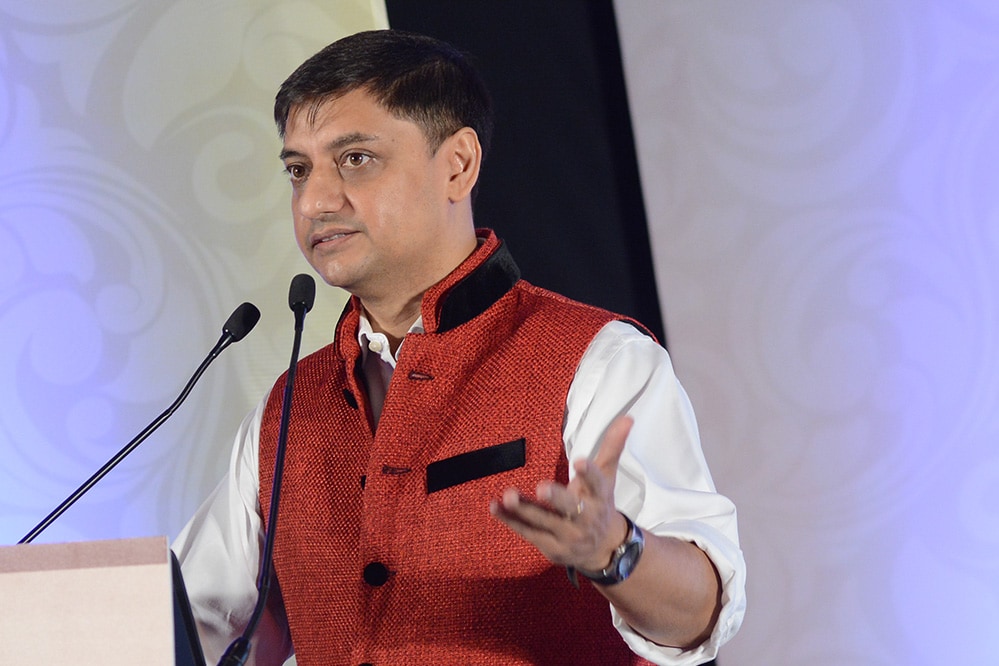
Government is in the thick of action solving immediate problems: Sanjeev Sanyal
Far-term benefits of measures like GST and demonetisation outweigh the near-term uncertainty in the system, says the principal economic advisor in the ministry of finance

The Narendra Modi-led Union government is directly getting into the thick of the action and implementing ideas like GST and demonetisation and solving problems on the go, rather than setting long-term plans that are often unattainable, says Sanjeev Sanyal, principal economic advisor, ministry of finance. Sanyal was speaking at the Motilal Oswal Global Investor Conference in Mumbai on Wednesday.
He says this approach by the government has huge long-term benefits, even if it results in near-term shocks to the economy. Here are his views on various issues that were raised at the conference:
Job creation
Services did not generate jobs. Agriculture accounts for around 13 percent of the economy and 45 percent of the jobs. Since the services sector was not generating jobs it was important to get into manufacturing and the government therefore focussed on the Make In India initiative. But to support this, it is important to first clean up the banking system.
Automation is an issue we will adjust to. We will leap frog and enter the post automation world of industrialisation without any problems.
We have an internal market for services, but we do not have an internal market for manufacturing. Fixing this was a priority for the government. If we do not have an internal market we will not be able to achieve the scale required to compete with the rest of the world. There is still a lot to be done in education and development and we are working on that. Whether we succeed or not, we will let you decide in a year’s time. It is certainly a focus area.
On Agriculture
We think widely about agriculture. Here, again, the internal market and rural incomes matter. First, it is about creating a strong transportation backbone in the country. Thanks to the efforts of successive governments, we have a good network of highways in India.
A major move has been to create an aviation network that connects Tier II cities. This is again part of the Udan scheme where 33 new small airports are being built. In parallel, huge investments are being made in railway switching systems to optimise the railway network.
With the transportation and communication backbone we will transform the rural economy. The largest cities have driven the growth of the country, so far. Now small cities will grow and the entire rural network around these cities will also grow. This can be done when you have basic infrastructure built.
PSU bank consolidation
Cleaning up of non-performing assets (NPAs) is top priority of the government. Consolidation will happen but it is secondary compared to NPA clean-up. We are not taking the 22 odd banks and merging them into four or five banks; we will reduce the number of banks to 10-15.
We recognise that there is a ‘too-big-to-fail’ problem. Right now there is only one bank of that scale—SBI. If we end up with four or five large banks and if one of them goes down, for whatever reason, the whole system will be affected.
Construction and housing
There are serious problems in the construction sector. One big effort is done through RERA to clean up the system and remove the rent seeking behaviour of certain developers. Some sort of regulation is being imposed but hopefully it will create a transparent system that will provide protection to consumers.
A similar thing can be done in infrastructure. The big focus of the banks has been on construction.
In the end, we recognise that by introducing a large number of changes very quickly like GST, demonetisation, Air India privatisation or clean-up of the banks we are causing uncertainty to the system. We are conscious of this. But bear with us. By the end of this year or next year we will have more or less completed this cycle and you would have had a much clearer view of what this new system is like and then we will be in a position to expand the economy and focus on growth.
X




